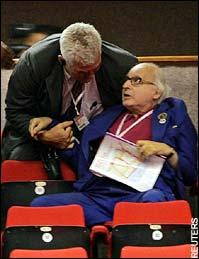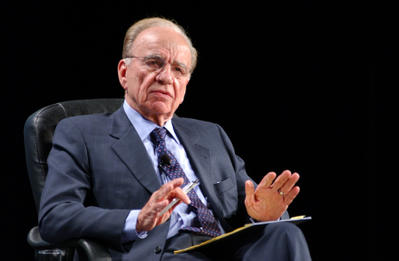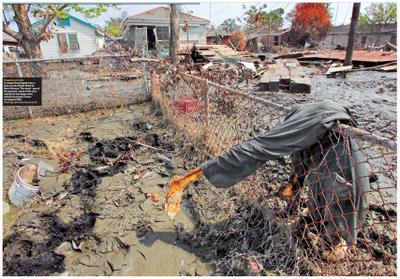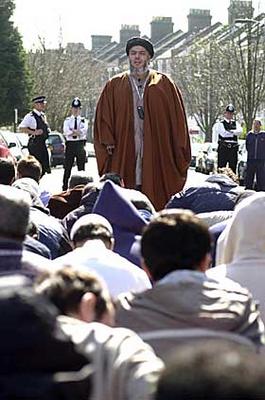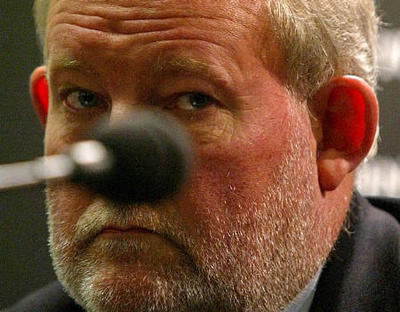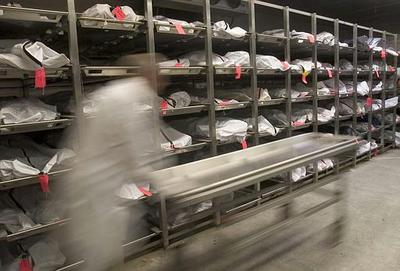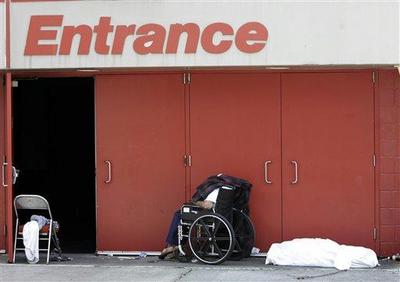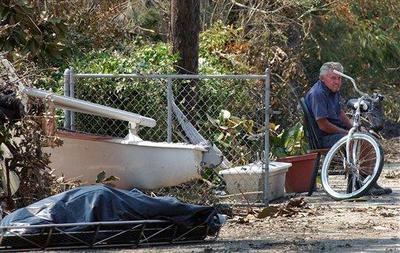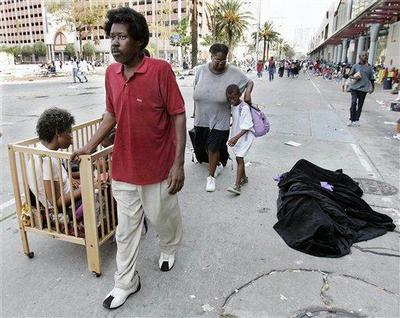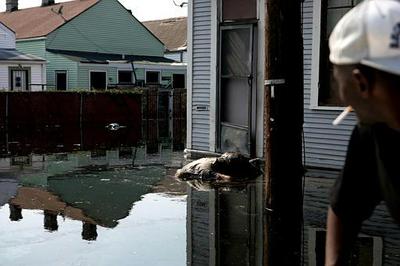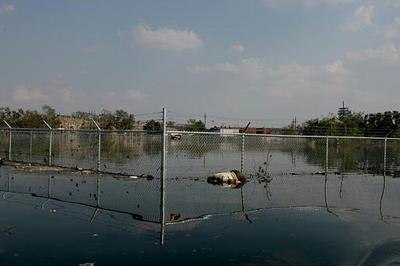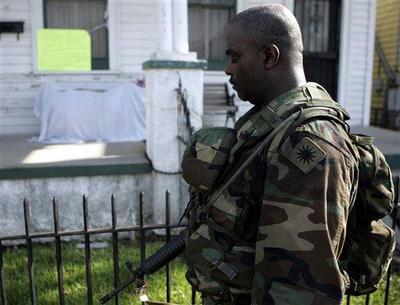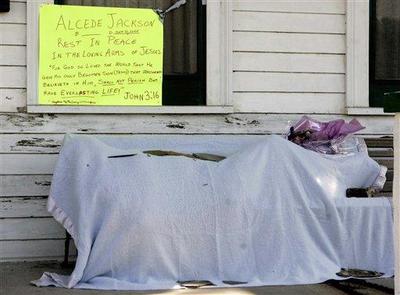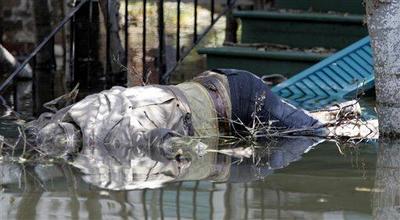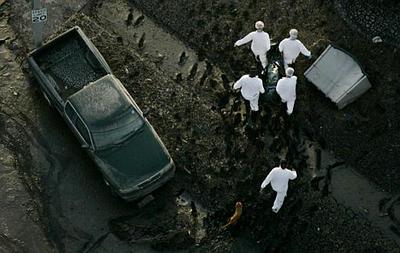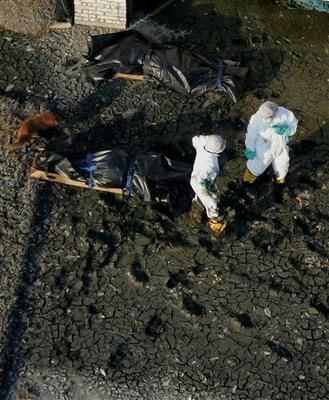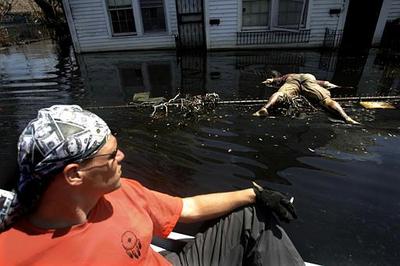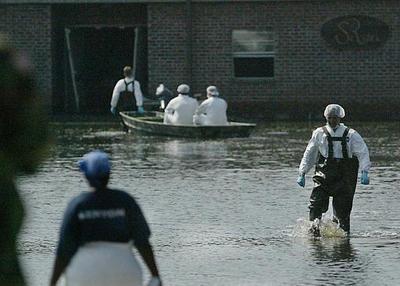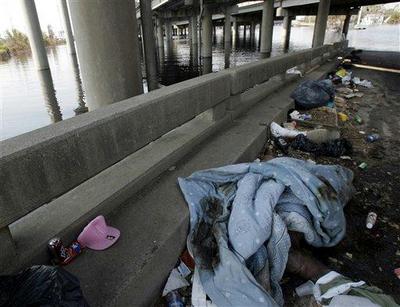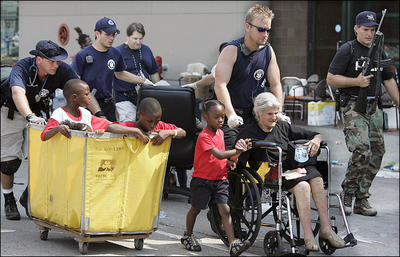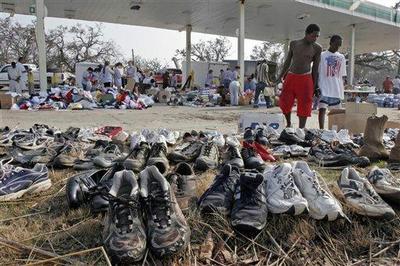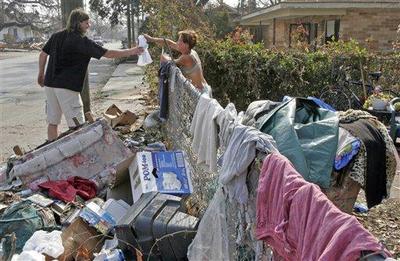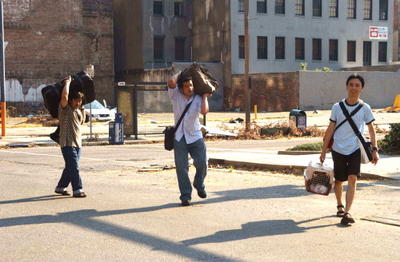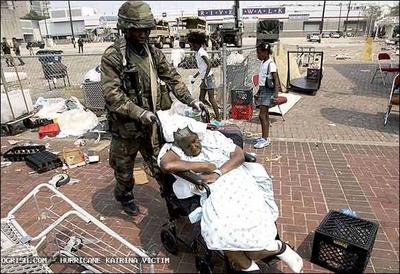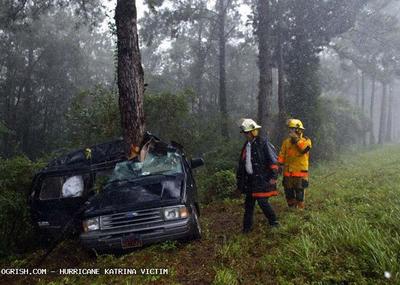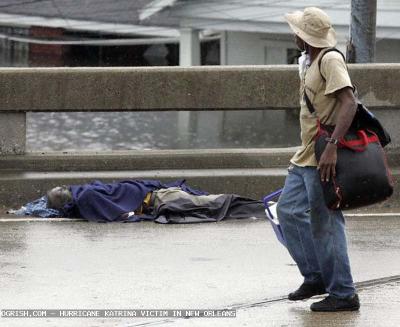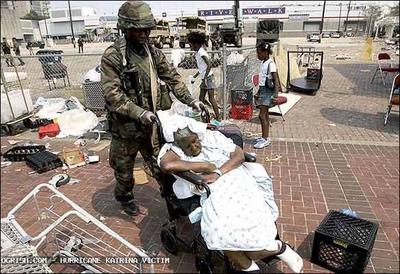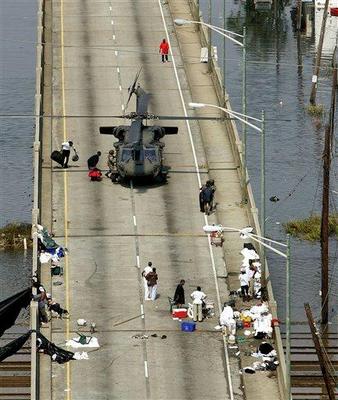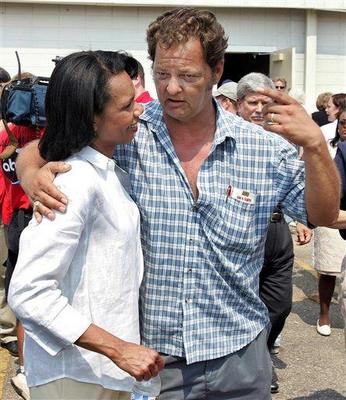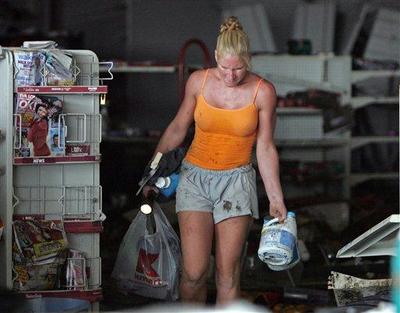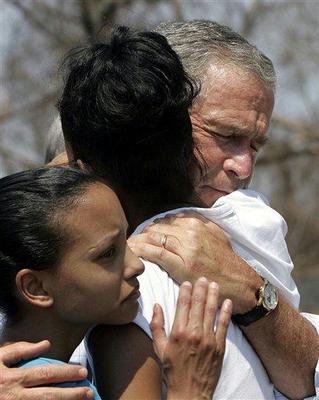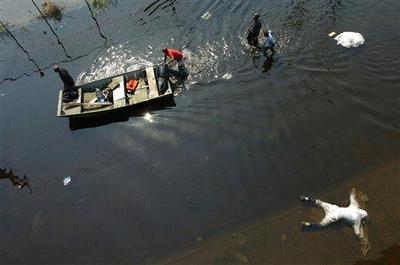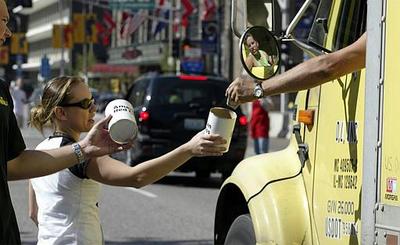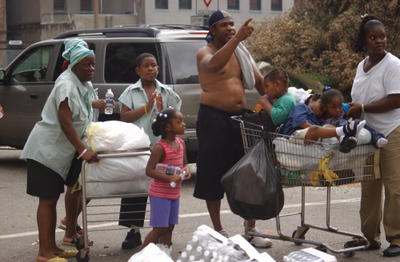Tony Blair yesterday completed his takeover of the Labour party. In his conference speech, he outlined exactly how he intends to "modernise" the public services, mainly by introducing "choice". Never mind that over half the population is unconvinced that the private sector has any place whatsoever in the NHS or running our schools, this is going to be Tony Blair's legacy.
It's worth going through Blair's entire speech to the Labour conference, just to show exactly how out of touch he has become with the average Labour or union member. The sad thing is that he has succeeded so well in destroying the Tories as a political force in this country that he has changed his adopted party into one slightly to the left of Thatcher's.
So what now? The world is on the move again, the change in the early 21st century even greater than that of the late 20th century. So now in turn, we have to change again - not step back from New Labour but step up to a new mark, a changing world is setting for us. The danger of government is fatigue; the benefit, experience.
I tell you my conclusion after eight years of being prime minister: the challenge we face is not in our values; it is how we put them into practice in a world fast forwarding to the future at unprecedented speed.
Over these eight years we have won the battle of values. The age we live in is democratic not deferential. We believe in solidarity. We believe in social justice, in opportunity not for a privileged few but for all, whatever their start in life. We believe in tolerance and respect, in strong communities standing by and standing up for the weak, the sick, the helpless.
Yes, the world is changing. China and India are undoubtedly rising, but their threat at the moment is being vastly exaggerated. Neither country is stable. Both have huge rates of poverty, with only a few being enriched. Our own country is barely democratic. When a party which won just 36% of the popular vote in the general election can have a majority of 60 seats in parliament, something stinks. If we believe in solidarity, why did Labour ministers condemn the strikers at Heathrow who walked out in support of the sacked Gate Gourmet workers? Why is Labour not prepared to remove the anti-union laws of the Thatcher era? The only solidarity Blair has believed in has been riding pillion with the United States in their foreign policy aims. If we believe in opportunity for all, why has Labour not done more to alleviate poverty? Tax credits, the minimum wage and Sure Start are all helping, but it is not enough. The gap between rich and poor continues to grow.
In the era of rapid globalisation, there is no mystery about what works: an open, liberal economy, prepared constantly to change to remain competitive. The new world rewards those who are open to it. Foreign investment improves our economy. Or take immigration. We know we need strict controls. They are being put in place, along with identity cards, also necessary in a changing world. But one of the most satisfying things about the election was that the country saw through the Tories' nasty, unprincipled campaign on immigration. People who come to work and make their lives here make Britain not weaker but stronger.
Yes, we need to remain competitive. But this is not at the cost of throwing all our benefits we worked for throughout this century out of the window. The Scandinavian model of society has been shown to work: high tax, liberal penal and social policies, care from cradle to grave. And their economies are not falling into recession. As for immigration, the Tories campaign was despicable. But this is the same Labour party which has deported the Kachepas back to Malawi to an uncertain future. It's the same party that was going to send back failed asylum seekers to Zimbabwe until stopped by a court. It's the same Labour party sending back immigrants to Iraq, despite the UN saying it is too dangerous. The pandering to the tabloids continues unabated.
In the first two terms we corrected the weaknesses of the Tory years: boom-and-bust economics, chronic underinvestment in public services, mass unemployment. But our job was never simply to repair the Tory damage; it was to create an inheritance for future generations by taking the tough decisions needed to secure our future. That is the task in the years ahead. We know how hard it is for families to balance work and home life. Over the next few years, we will open up for the first time ever a new frontier of the welfare state: affordable, wraparound childcare between the hours of 8am-6pm for all who need it. We will get more people off benefit and into work.
Labour inherited an economy on the up, but this is mainly correct. The childcare of 8-6 is a great, laudable idea. But it must not come through ever greater use of the private sector whose only aim is to profit from the children they are looking after. Children also should not be expected to be there from 8 till 6 every weekday. The culture of teaching to exams and SAT targets must be further investigated and changed if necessary.
Let's be frank about why so many people are on incapacity benefit: under the Tories it was used to conceal unemployment. Next month we will publish proposals radically to reform the benefit for the future and help people who can work back into the workforce, where they belong.
This is an untruth, and Blair knows it. Incapacity benefit has been used by many of those who suffered in the industrial decline under Thatcher, especially in the north. Many of those on it will never work again. They should not be forced back into menial, depressing work on lower pay that what they currently get it, just to improve figures which the Tories themselves created.
Next year too, building on Britain's Kyoto commitments, we will publish proposals on energy policy. Global warming is too serious for the world any longer to ignore its danger or split into opposing factions on it. And for how much longer can countries like ours allow the security of our energy supply be dependent on some of the most unstable parts of the world?
For both reasons the G8 agreement must be made to work so we develop together the technology that allows prosperous nations to adapt and emerging ones to grow sustainably; and that means an assessment of all options, including civil nuclear power.
In transport, we will continue to develop proposals for a fundamental change in its funding, including road pricing. And next year, too, we will address the future of local government: a new and ambitious blueprint strengthening the leadership of our cities, giving good councils new freedoms and devolving more power to neighbourhoods.
Blair says the above, but we all know that energy policy won't go far enough. Some scientists already believe that global warming is too far advanced for anything to be done. As for depending on unstable countries for our energy supply, why doesn't he order the oil companies to actually drill what there is in the North Sea, rather than relying on easier to drill places such as in Russia? Part of the instability in the Middle East is our direct fault, and we continue to prop up regimes such as Saudi Arabia. Civil nuclear power is not going to solve anything. British Nuclear Fuels is badly run, costing taxpayers billions of pounds. Further plants would cost huge amounts of money, continue to create waste which we don't know what to do with, and would be unable to meet our energy demands on their own. All options must be on the table, but nuclear isn't the only answer.
In transport, we will continue to develop proposals for a fundamental change in its funding, including road pricing. And next year, too, we will address the future of local government: a new and ambitious blueprint strengthening the leadership of our cities, giving good councils new freedoms and devolving more power to neighbourhoods
No mention of the disaster of rail privatisation, a Tory blunder which Labour refuses to correct. Instead it is selling off a franchise which the public sector took over due to an appalling service, despite it being vastly improved and just as cost-efficient. The huge price increases in train fares have not resulted in an improved service. Buses are in a similar mess. Road pricing might work; it also might not. Instead of focusing on car-sharing, removing the car from the centre of our lives and developing alternatives, we continue with an unsustainable policy. New Labour, no change.
The truth is, command public services today are no more acceptable than a command economy. The 21st century's expectations in public services are a world away from those of 1945. People demand quality, choice, high standards. Why? Because in every other walk of life they demand them. And they are paying their taxes, so they feel they are entitled to them. If we misunderstand this, we will make a mistake of the proportions of council house sales in the 1980s. We know what makes a good school: good leadership, great teachers, strong discipline, a love of learning. We know what makes good healthcare: quick access, committed care, clean, comfortable surroundings. But what happens if you can't get them? If you've the money, you buy better. That is an affront to every progressive value we believe in. There's a great myth here, which is that we don't have a market in services now; we do. It's called private schools and private healthcare. But it's only open to the well-off. There is another myth: choice is a New Labour invention. Wrong. Choice is what wealthy people have exercised for centuries. The Tories have always been comfortable with that. But for Labour, choice is too important to be the monopoly of the wealthy.
A final myth: the way to keep universal services universal is to make them uniform. Again, wrong. The way to keep services universal is to make them of such quality that enough of those who can afford to go private opt to stay in the public service.
Of course people demand quality, choice and high standards. But they want it where they are, locally. They don't want to choose which hospital to have it, or whether to go part-private. They want it where they are. If that is being uniform, then uniform is what they want. What the rich have is access to quality; that is not choice. Choose between the NHS and private and if they can afford it they'll pick private anyway. The NHS is there for everyone's use, no matter what, but we shouldn't introduce needless reforms and markets to pander for those who always have and always will do otherwise. Quality at point of access is what is essential.
I will never return us to selection aged 11 in our schools. I will never allow the NHS to charge for treatment.
Under the Warwick accord, we are ending the two-tier workforce. But it isn't fair when parents have no option but to send their child to a poor local school, or a patient can't get diagnostic tests done in six months when the technology and the capacity exist to deliver it in days.
The wealthy, by their wealth, can change that in their lives. I want decent, hardworking families to have the same power. Every time I've ever introduced a reform in government, I wish in retrospect I had gone further.
Specialist schools, denounced at the time, have performed better than traditional comprehensives. Fact. City Academies are massively oversubscribed. Fact. And the beneficiaries are not fat cats. They are some of the poorest families in the poorest parts of Britain.
We only got big falls in waiting times after introducing competition for routine surgery. Fact. That is why the NHS reforms, to break down the old monolith, bring in new providers, allow patients choice, must continue. Money alone won't work; money and reform will, and if we stick with it, by 2008 we will for the first time in the NHS's history offer booked appointments at the patient's convenience and a maximum wait of 18 weeks from the GP to the operating theatre with an average wait of nine weeks - not the 18 months just to get off the consultants' list we inherited from the Tories but 18 weeks for the whole thing.
Selection at 11 still exists in many parts of the country, and Labour has done nothing to remove it. In fact, with the specialists and academy schools, it has continued to further it. Specialist schools can select some of their intake; academies are becoming massively oversubscribed because they're new and getting more money putting into them. Neither have yet been found to be improving standards when viewed on a basis with the schools they replaced. Instead of distributing the money fairly these schools are taking the pick over the "bog-standard comprehensives" loathed by Labour.
Every time he's introduced a reform he's wanted to go further. Did you want to make top-up fees even higher than £3,000 Mr Blair, when your education was free, even though you promised not to introduce them in the 2001 manifesto? Did you want to make foundation hospitals even more financially independent, even though they are having just as many problems without complete independence? Did you want to destroy the lives of even more single mothers by taking away their benefits? The numbers of those enduring long waiting times were dropping before competition was introduced.
The same adjustment to the modern world challenges traditional thinking on law and order. It is true: crime, overall, is down, burglary and car crime by big numbers. But it's not the point.
Respect is about more than crime. It's about the loss of a value which is a necessary part of any strong community: proper behaviour, good conduct, the unselfish notion that the other person matters. The roots of this are deep and are formed partly by the same forces of change at work in our economy: the break up of traditional communities and family structures, changing lifestyles.
The bonds of cohesion have been loosened. They cannot be tied again the same way. But, in a different way, they can. And, again based on my experience, I want to say how I think it can be done.
For eight years I have battered the criminal justice system to get it to change. And it was only when we started to introduce special ASB laws, we really made a difference. And I now understand why: the system itself is the problem. We are trying to fight 21st-century crime - ASB, drug-dealing, binge-drinking, organised crime - with 19th-century methods, as if we still lived in the time of Dickens.
The whole of our system starts from the proposition that its duty is to protect the innocent from being wrongly convicted. Don't misunderstand me: that must be the duty of any criminal justice system. But surely our primary duty should be to allow law-abiding people to live in safety.It means a complete change of thinking. It doesn't mean abandoning human rights; it means deciding whose come first.
I believe three things work. First, a radical extension of summary powers to police and local authorities to take on the wrongdoers. We will publish plans to do this by the end of the year. They will tackle, specifically, binge drinking, drug dealing and organised crime and develop existing laws on ASB.
Second, we need a uniformed presence on the street in every community. Officers on the beat is what the public have wanted for years, and they're right. I have seen teams of police and CSOs in action. It works. We want them across the whole of Britain over the next few years.
Third, give our young people places to go so that they're off the street. Invest in our youth services: more competitive sport in schools; give headteachers the full disciplinary powers they want; end the farce of half a dozen agencies all spending hundreds of thousands of pounds on problem families. Identify these families early, have them handled by one lead agency and give it whatever powers it needs to affect change or impose sanctions. And give local communities the powers they need to hold people to account.
Yes, the anti-social behaviour orders really have changed the criminal justice system. It's only in the last couple of years they have been fully implemented, and the results are there for all to see: the mentally ill, prostitutes, beggars, the disassociated of society, the different, they have all been targetted because of who they are. I'm not denying that ASBOs have worked in some cases, but they continue to be draconian as all Labour crime policy has been. The use of curfews meaning that law-abiding 16-year-olds cannot go out alone to the shops after dark without fear of being arrested is not what Britain should be associated with.
Blair once again gets the purpose of the criminal justice system utterly wrong; the system is meant to be neutral. It does not swing in either way. Deciding who comes first smacks of stacking the odds of the accused against the accuser, with all the problems that brings. If the summary powers involve on-the-spot uses of anti-social orders, then that must be opposed. Binge drinking is to be tackled at the same time as the government is handing out 24-hour opening licenses that will most likely change already no-go area town centres at weekends into permanent zones to be avoided. Joined-up thinking is not part of Labour's policy. Tackling drug dealing at the same time that cannabis is being reviewed as to whether it should become an arrestable offence again. Wasting police time is high on the agenda. There's still no direct evidence that police presence deters crime, but hell, I'd rather it'd been spent on more police than on ID cards, which are still going ahead.
The rest of the speech is mainly on terrorism and has all been said before. Notice what Blair didn't say: He didn't mention socialism. He mentions equality once at the end, but doesn't say how he attempts to achieve it. He doesn't mention the widening gap between the rich and poor. He doesn't mention the inflationary pay of those on the FTSE 100, as workers struggle on barely above the minimum wage. His whole arguments and repeated points for constant reform are tired. But Gordon Brown was no better on Monday. His vision is one only slightly less Blairite, but with the same pandering to business and the same private finance intitative schemes which have failed so spectacularly. Labour has become utterly moribund. The other two main parties are just even worse. The Lib Dems are moving to the right. Left behind are the Greens, Respect, UKIP, the nationalists and the BNP. All of them a wasted vote. If Blair's aim was to turn Britain into an effective one-party state, he has succeeded. If his intention was to make people feel a part of this one-party state, he has failed.
So where do we go from here? Today I feel utterly disenfranchised by a party which my father supported and campaigned for. Labour has become the party of big business. There seems to be little reason or even if there was, a way to stop it. Is there an alternative? Cherie Blair said it, but she was talking about her husband: "Darling, it's a long way in the future."

